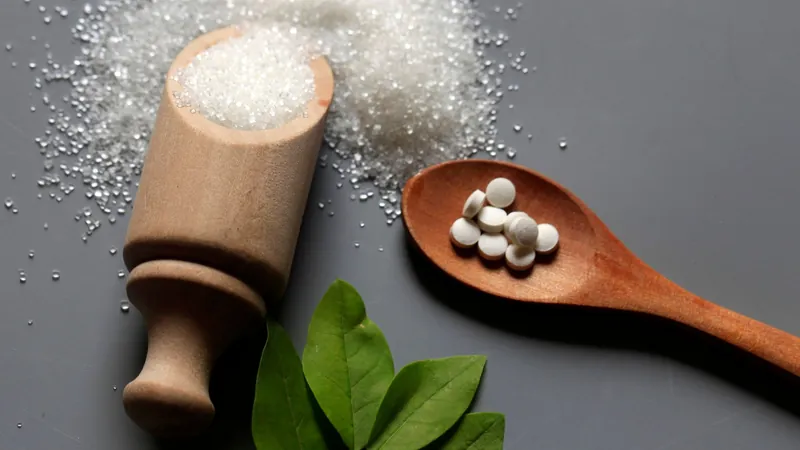
Sweeteners and Your Brain: Shocking Link to Cognitive Decline Revealed!
2025-09-06
Author: Wei Ling
Are Your Favorite Artificial Sweeteners Harming Your Brain?
In a groundbreaking study conducted over eight years in Brazil, researchers have uncovered alarming findings: certain artificial sweeteners could be linked to cognitive decline and poorer verbal fluency, even in individuals under 60!
The Sweeteners at Risk
Scientists tracked over 12,700 civil servants, examining their intake of six popular artificial sweeteners: Aspartame, Saccharin, Acesulfame-K, Erythritol, Sorbitol, and Xylitol. The results indicated that those who regularly consumed these sweeteners showed notable declines in cognitive performance and verbal skills, especially before reaching their 60s.
Dr. Claudia Suemoto, a co-author of the study and associate professor of geriatrics at the University of Sao Paulo, warns, "Cognitive performance typically peaks between the ages of 25 and 30, and while a gradual decline is natural, our research suggests that sweeteners might be speeding up this process."
Who is Most Affected?
Participants in the study started as young as 35, with an average age of 52. Interestingly, younger individuals with diabetes experienced a marked decline in cognition and speech abilities.
A War on Sweeteners?
In light of these findings, the conversation around artificial sweeteners is heating up. Robert F. Kennedy Jr., head of the FDA, has launched a campaign against not just artificial sweeteners but sugar as well, labeling it "poison." Kennedy advocates for clear labeling to help Americans reduce their sugar intake to zero.
The Science Behind the Decline
So why might these sweeteners be detrimental? Previous animal studies suggest that artificial sweeteners could lead to neuroinflammation and damage the crucial gut-brain connection. However, caution is warranted as these tests used much higher doses than humans typically consume.
A Demand for More Research
Despite the study's significant findings, limitations such as reliance on self-reported data and potential selection bias have been noted. Dr. Suemoto emphasizes the need for future research, including advanced brain imaging and trials testing the impact of eliminating these sweeteners from diets.
What the Industry Says
The International Sweeteners Association has responded to the study, insisting that observational studies like this one can merely suggest correlations but cannot prove direct causation. They warn that a host of factors—diet, lifestyle, and existing health conditions—could influence these results.
A Broader Health Perspective
This research adds to growing concerns over artificial sweeteners. A 2022 French study previously linked them to an increased risk of heart disease, while another suggested correlations with specific cancers. As the debate continues, it's clear that consumers should scrutinize their sweetener choices more than ever.


 Brasil (PT)
Brasil (PT)
 Canada (EN)
Canada (EN)
 Chile (ES)
Chile (ES)
 Česko (CS)
Česko (CS)
 대한민국 (KO)
대한민국 (KO)
 España (ES)
España (ES)
 France (FR)
France (FR)
 Hong Kong (EN)
Hong Kong (EN)
 Italia (IT)
Italia (IT)
 日本 (JA)
日本 (JA)
 Magyarország (HU)
Magyarország (HU)
 Norge (NO)
Norge (NO)
 Polska (PL)
Polska (PL)
 Schweiz (DE)
Schweiz (DE)
 Singapore (EN)
Singapore (EN)
 Sverige (SV)
Sverige (SV)
 Suomi (FI)
Suomi (FI)
 Türkiye (TR)
Türkiye (TR)
 الإمارات العربية المتحدة (AR)
الإمارات العربية المتحدة (AR)